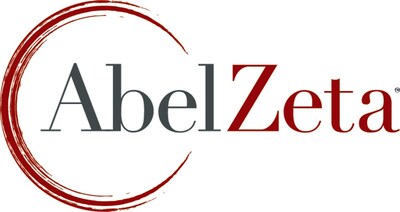
Its report examined of the rise in the surcharge in land and buildings transaction tax (LBTT) on the purchase of second and rental homes.
It considered the effect on purchasers, on tenants and on the housing sector.
Scotland’s Budget for 2025–26, published in December, announced an increase in the LBTT surcharge for second homes from 6% to 8%. The surcharge rise came into force in December last year.
What does the rise in the surcharge mean for those buying second homes as a holiday property or to rent out and for tenants?
The IFS says that for those buying a second property for £500,000, the purchaser must now pay £63,350 or 12.7%, in LBTT on top of the purchase price. This is because the second home owner pays the 4.7% LBTT, plus the 8% surcharge taking it to 12.7%. This compares to £23,350, or 4.7%, if bought as an owner-occupier’s main home.
If the second property was bought for £200,000, the purchaser would pay £17,100 in tax on top of the purchase price, while if it cost £300k, the purchaser would pay £28,600 in tax, the IFS calculates.

The IFS argues that the rise in the surcharge will encourage owner-occupation, but will make it “even more difficult and expensive for those who remain in the rental sector”.
It says that tenants are likely to face higher rents as a result of the rising costs faced by landlords on home purchases.
“This makes Scotland’s most ill-conceived tax even bigger and more damaging. The change will encourage owner-occupation, but will make it even more difficult and expensive for those who remain in the rental sector – tenants who are likely to face higher rents as a result of the policy.
“The policy does not just penalise the rental sector, it penalises transactions within the rental sector. Preventing a landlord who wants to sell their property to another landlord from doing so is bad for both landlords and tenants,” the IFS report states.
READ MORE:
“Taxing property transactions is an exceptionally damaging way to raise revenue. It discourages mutually beneficial transactions, so properties are not owned by the people who value them most. That misallocation of property makes everyone worse off. The increase in the ADS makes a bad tax bigger and even more harmful.”
Stuart Adam, one of the authors of the report, says: “It is hard to think of any economically rational strategy that would justify recent policy on LBTT, which has made Scotland’s most ill-conceived tax ever bigger and more damaging.’
Why does the IFS think the surcharge on LBTT for second homes is so damaging?
Its report argues that the rationale given in the budget was that it would raise revenue and that ‘the increased rate also supports the Scottish Government’s commitment to protect opportunities for first-time buyers in Scotland’.
The Scottish Fiscal Commission (SFC) estimates that it will indeed raise revenue, around £30 million a year – though it states that is less than half of what it would have raised for the public purse if people were not put off making such purchases by the tax increase.
The IFS states: “Penalising the rental sector will indeed make it cheaper and easier for people to move into owner-occupation. What the Scottish Government did not mention is that it will also make it even more difficult and expensive for those who remain in the rental sector – tenants who are likely to face higher rents as a result of the policy as well as landlords.”
It goes on to argue that the “case for tilting the playing field even further towards owner-occupation and away from rental is doubtful”.
It argues that landlords must also pay income tax on their rental income and capital gains tax on any increase in the property’s value, neither of which applies to owner-occupiers.
“The ADS does not just penalise the rental sector, it penalises transactions within the rental sector. Preventing a landlord who wants to sell their property to another landlord from doing so is bad for both landlords and tenants.
“This is even more pointed as it comes alongside a new power for councils to ask ministers to designate areas for rent controls. The combination of rent controls and high LBTT could lead to a withering of the rental market in some areas, and while some tenants could benefit, others would lose.”
Its report states: “This continued a trend of increases in this ‘additional dwelling supplement’…makes an already highly economically damaging tax even worse.”
What does the Scottish Government say?
A Scottish Government spokesperson says: “The Scottish Government has taken a progressive approach to land and buildings transaction tax, prioritising support for first-time buyers and home movers while raising vital revenue to support public services.
“Scotland’s tax policies are grounded in evidence and carefully balance the need to raise revenue with the impacts on taxpayers and the economy.”




